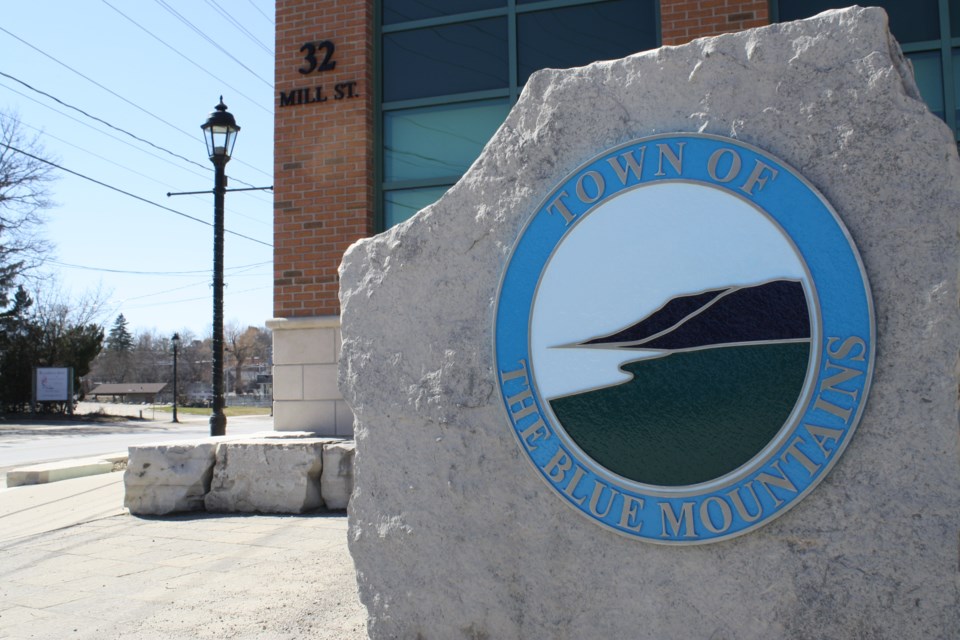A provincially-regulated licence and criss-crossed infrastructure service lines are complicating the drinking water agreement between Collingwood and the Town of the Blue Mountains (TBM).
After putting a pause on development to search for solutions to increase its water treatment capacity, the Town of Collingwood has begun eyeing up an existing drinking water agreement that it has with TBM.
Collingwood and TBM staff met on Monday morning to discuss the current drinking water situation and agreement.
Since 2015, TBM has an agreement in place with Collingwood that allows TBM to take up to 1,250 cubic metres a day of treated drinking water.
“There are areas within the town that are reliant on that Collingwood water system,” said TBM CAO Shawn Everitt during a council meeting held Monday night.
According to TBM’s 2019 capacity report, the rated capacity of the TBM drinking water system is 15,140 cubic metres per day plus 1,250 cubic metres per day from Collingwood.
Based on maximum daily demand, TBM’s drinking water system can supply water to 15,462 units. In 2019, there were 8,647 units connected to the system.
However, the issue isn’t necessarily capacity, but location.
“There is a portion on the east end of the community that is serviced strictly from this arrangement with Collingwood, and TBM, it also provides some water to residents in Collingwood along their western border,” TBM's director of operations, Shawn Carey explained. “As it stands right now, we're reliant on a portion of those 1,250 cubic metres.”
Along with sorting out jumbled infrastructure servicing, the agreement TBM has with Collingwood is also a part of TBM’s heavily regulated drinking water licence with the province.
“That cubic meters per day arrangement or formal agreement that we currently have in place with the town of Collingwood is considered part of our licence,” Carey said.
As such, TBM will be requesting a meeting with the Ministry of Environment, Conservation and Parks, which regulates a municipality's drinking water licence.
“It's really important that they're aware of this. And then looking at what the rules from a regulatory perspective are going forward and where or what flexibility we actually have,” Carey said.
If Collingwood were to move to terminate the agreement with TBM, it would be required to provide 365-days notice. However, according to Carey, that isn’t being discussed at this time.
“That's not really where this conversation was heading, it's more around what are some of the opportunities or operational considerations and perhaps some of the flexibility that we could reach between both parties,” he said.
Moving forward, staff from both jurisdictions will be working together to find “operational considerations” as well as requesting a meeting with the ministry.
“I'm very confident that this is a collaborative thing. We need to get through this as a group and help out our colleagues to the east, but yet make sure that our needs are looked after,” Everitt added.
TBM’s annual assessment report for water and wastewater is expected to shine more light on the town’s current usage and capacity and will be presented to council on June 1.
In addition, town staff expect to present an additional staff report that will look at how Collingwood’s water capacity issues may impact development in TBM – particularly along the east side of the municipality.



